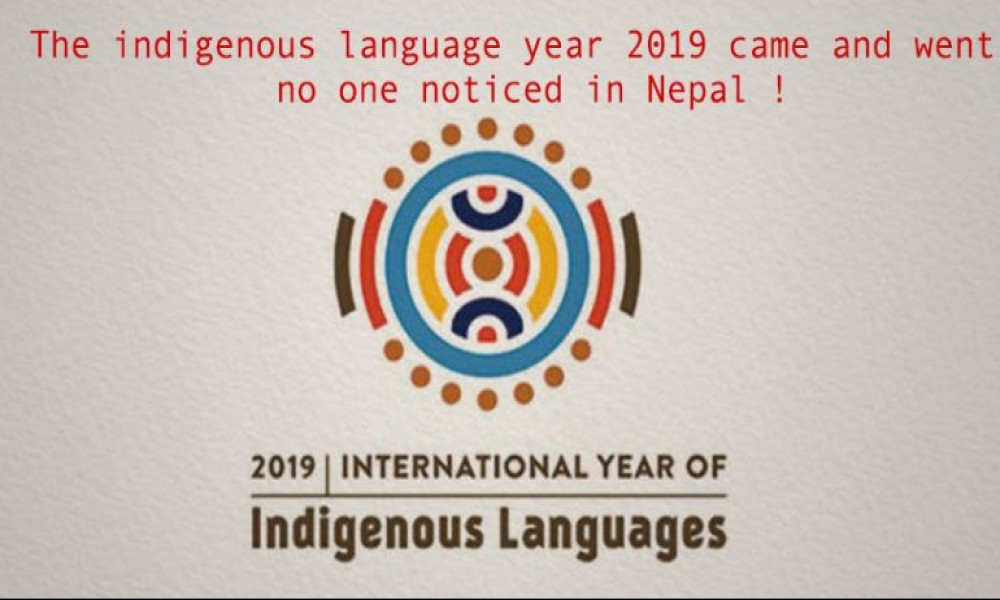As COVID-19 spreads like wildfire all over the world, scientists are now scrambling to find a vaccine against this contagious disease. But manufacturing a vaccine is a time-consuming process marked by multiple phases of trial, which is expected to take at least one year. Scientists have also been unable to find medicine to treat COVID-19 patients. Therefore, people are now focused on increasing their immunity to survive the disease.
In Nepal, Indigenous Peoples have turned to a variety of locally-available traditional food to enhance their immunity system against the deadly virus. Rajbanshi Sewa Bikash Samiti, which is an association of indigenous Rajbanshi people living mostly in the country's eastern plains region, has urged its members to consume their traditional food in the aftermath of the global epidemic.
In Nepal, Indigenous Peoples have turned to a variety of locally-available traditional food to enhance their immunity system against the deadly virus. Rajbanshi people living mostly in the country's eastern plains region, has urged its members to consume their traditional food in the aftermath of the global epidemic.
Samiti's President Bhim Raj Rajbanshi says: "If we have strong immune system, our bodies can easily fight COVID-19. So we are encouraging Rajbanshi people to eat their traditional food like Bhakka Theka, Niguro (fiddlehead fern) and lots of vegetable."
People who eat traditional indigenous food containing nutritious elements are not immune to the disease, but their bodies can fight back the disease if they are infected.
People living in Nepal's southern plains region, including indigenous communities like Rajbanshi, are more vulnerable to being infected with the disease because they are close to India, which has reported more than 17,000 confirmed cases so far -- much higher than any South Asian country. Even though the Nepal-India border has been sealed, people are still crossing into the Nepali side through many unguarded check-points.
Like Rajbanshi, indigenous Tajpuriya people also live in the Tarai. Although they have been staying indoors during the lockdown, they fear being infected with the virus carried by people who come from India despite the border closure. Tajpuriya Samaj Kalyan Parishad's President Ganga Ram Tajpuriya says: "We are at risk because people from India are still crossing into Nepal".
According to Tajpuriya, people who have come to Nepal from India despite the lockdown are traveling through villages like Gauradaha and Gauriganj of Jhapa to sell vegetables. The lockdown has prevented local people from organising weekly local markets, and Indians have cashed in on this situation to sell their produces.
People who have come to Nepal from India despite the lockdown are traveling through villages to sell vegetables. The lockdown has prevented local people from organising weekly local markets, and Indians have cashed in on this situation to sell their produces.
He says: "Although police have been deployed along the border, people from India are still able to cross into Nepal. This has created fears about corona transmission".
Bhim Raj Rajbanshi of Rajbanshi Sewa Bikash Samiti also believes that they are vulnerable to COVID-19 due to cross-border movement despite the lockdown. He says: "After the lockdown, we have not been able to work. We have lost our livelihood. But we are still obeying the lockdown because we know it is for us. But there is no point of such a lockdown if people from India can still roam around."
To help contain COVID-19, indigenous Dhimal people have abstained from organizing their annual festival. Dhimal Jaati Bikash Samiti's President Tej Dhimal says: "We did not celebrate the festival. We just performed low-key pooja."
Apart from Dhimal, Tajpuriya and Rajbanshi, Nepal's Tarai is home to indigenous communities like Kishan, Meche, Kushbadiya, Santhal, Jhangad, Bote, Gangai and Urau. They have their own traditional customary institutions and food items, which they have turned to during this time of crisis.








